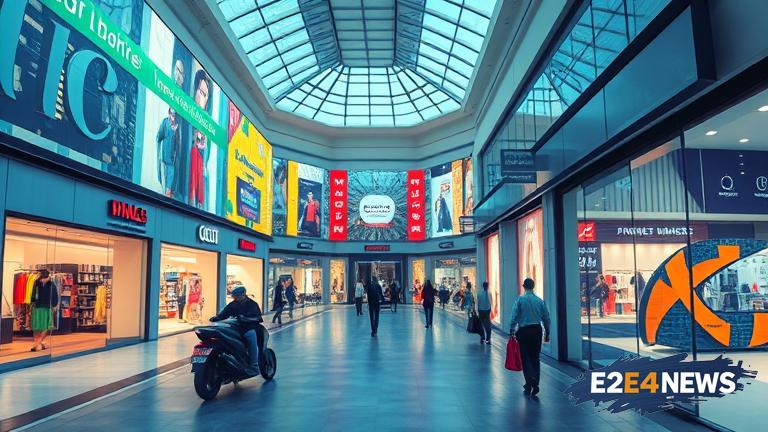The Indian retail sector has witnessed a significant shift in focus from high street leasing to malls in the second quarter of 2025. According to recent reports, high street leasing has declined by 26% in Q2 2025, indicating a notable change in the retail landscape. This decline is largely attributed to the increasing popularity of malls, which offer a more comprehensive and convenient shopping experience. Hyderabad and Mumbai have emerged as the leading cities in this trend, with a significant increase in mall leasing activities. The decline in high street leasing can be attributed to various factors, including high rents, lack of parking facilities, and limited brand visibility. On the other hand, malls offer a more organized and structured retail environment, with amenities such as food courts, entertainment options, and ample parking space. The growth of e-commerce has also contributed to the decline of high street leasing, as consumers increasingly prefer the convenience of online shopping. However, malls have been able to adapt to this change by incorporating online shopping experiences and offering services such as click-and-collect. The Indian retail sector is expected to continue growing, with malls playing a vital role in shaping the industry’s future. The shift towards malls is also driven by the increasing demand for experiential retail, where consumers seek immersive and engaging shopping experiences. Malls are well-equipped to provide such experiences, with their diverse range of stores, restaurants, and entertainment options. Furthermore, malls offer a more secure and safe shopping environment, which is a major concern for consumers in India. The decline in high street leasing has also led to a decrease in rental values, making it more challenging for retailers to maintain profitability. In contrast, malls have been able to maintain their rental values, due to their ability to attract a large and diverse customer base. The growth of malls has also created new opportunities for retailers, with many international brands entering the Indian market through mall-based stores. The Indian government has also introduced policies to support the growth of the retail sector, including the easing of foreign direct investment (FDI) norms. The shift towards malls is expected to continue, with many new mall projects being developed across the country. The increasing demand for retail space in malls has also led to a growth in the construction of new malls, with many developers investing heavily in this sector. The future of the Indian retail sector looks promising, with malls playing a vital role in shaping the industry’s growth. The decline of high street leasing is a significant trend, and retailers will need to adapt to this change by exploring new opportunities in malls and other retail formats. The growth of e-commerce will also continue to influence the retail sector, with malls needing to incorporate online shopping experiences to remain competitive. Overall, the Indian retail sector is undergoing a significant transformation, with malls emerging as the preferred destination for retailers and consumers alike.
